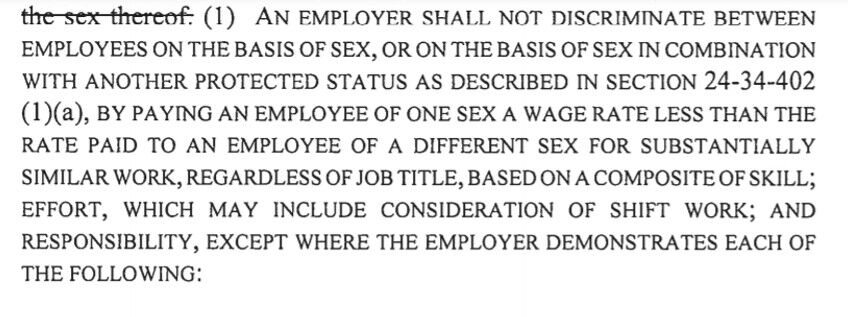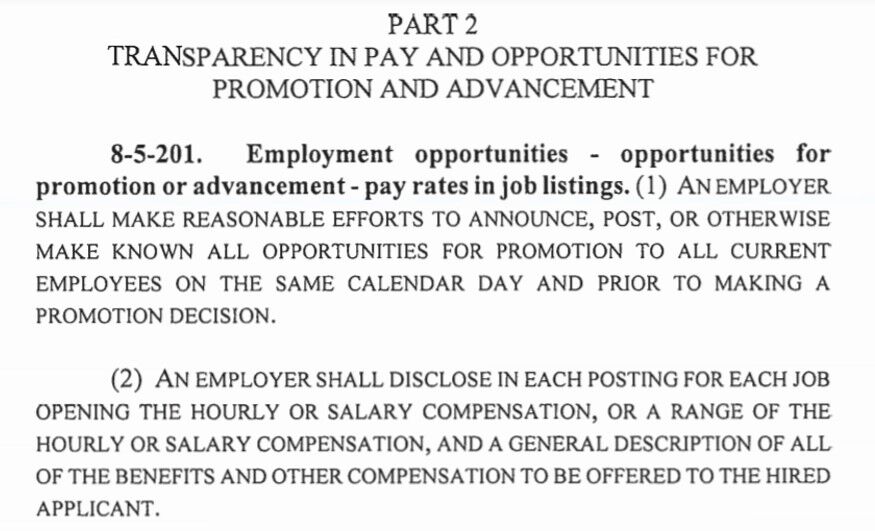Colorado’s Equal Pay for Equal Work Act: What does it say?

Gov. Jared Polis signed Senate Bill 85, the Equal Pay for Equal Work Act, into law in May 2019, and its provisions took effect on Jan. 1 of this year. The legislature pointed to findings that women working full-time and year-round in Colorado earned 86 cents for every dollar earned by a man working full-time and year-round.
As such, the purpose of SB 85 was to help narrow that gap.

There are a couple of primary features the legislature enacted to accomplish this. First, there is a blanket prohibition on paying employees of one sex a different wage from their counterparts of a different sex for very similar work. There are exceptions for pay based on a seniority or merit system, quantity-based output, geographic location, education, training or experience.

The act also prohibits employers from asking a job candidate about their current pay, or using their pay history to determine their salary if hired. Employers may also not retaliate against a worker for comparing or discussing their pay with other employees.
Who is an employer? It is anyone who employs at least one person in Colorado.

The more controversial part of the law is Part 2, which governs pay transparency and opportunities for promotion. Part 2 requires employers to make an effort to announce promotion opportunities to current employees at the same time, and before making a decision on whom to promote. When posting a job opening, they must also disclose the pay rate, or a range of pay, plus a general description of the position’s benefits. Those could include health insurance, bonuses or commissions.

But there is more: the act empowered the Division of Labor Standards and Statistics at the state’s labor department to make rules for implementing the law. Under the regulations adopted on Nov. 10, the division reiterated the legislature’s goal of providing transparency for the total compensation that a job applicant may expect or negotiate for, but clarified that “minor perks” are not necessary to disclose.
Although employers who provide a pay range must estimate the lowest and highest salary they expect to give, they may actually pay the person who gets the job an amount outside of that range, as long as the estimate was made in good faith.

The division noted that there are legitimate reasons to advertise promotions to all employees, regardless of whether managers think certain people are qualified for the job. As such, Part 2 applies to all current employees and all promotional opportunities.

Finally, there is a geographic limitation for salary disclosure and promotion announcements. Job postings outside of Colorado and positions that are to be performed entirely outside of the state are not subject to Part 2. Also, employers do not need to make employees outside of Colorado aware of promotion announcements.

But what about remote jobs? The division has concluded that the exception to posting salaries for entirely out-of-state jobs does not apply to remote work, because those positions could, in fact, be performed in Colorado. Because employers might not determine whether a new employee will be in Colorado until after hiring them – and people may move to Colorado to work after being hired – an “internet posting accessible in Colorado” is subject to the pay disclosure rule.
RELATED STORIES:













